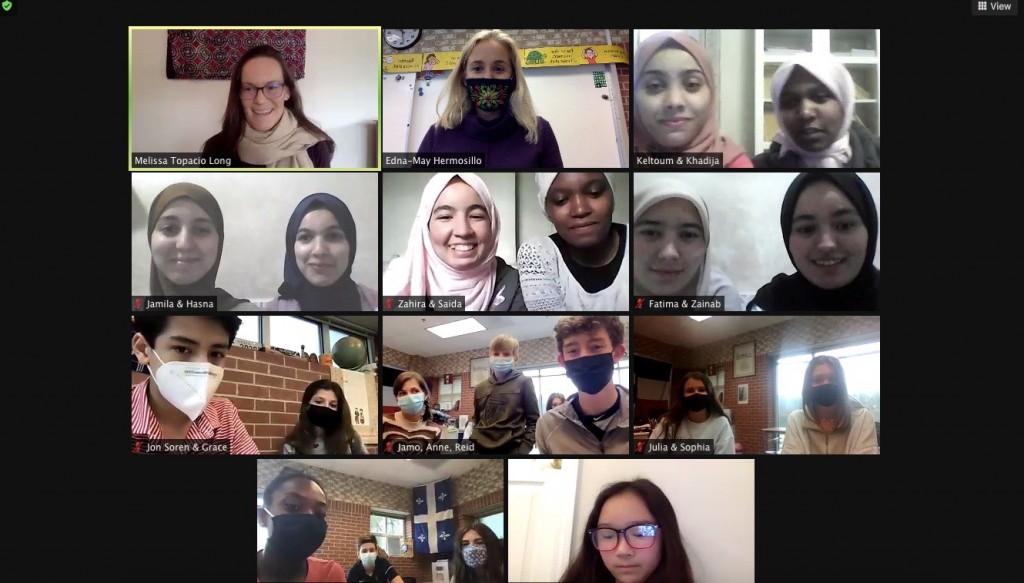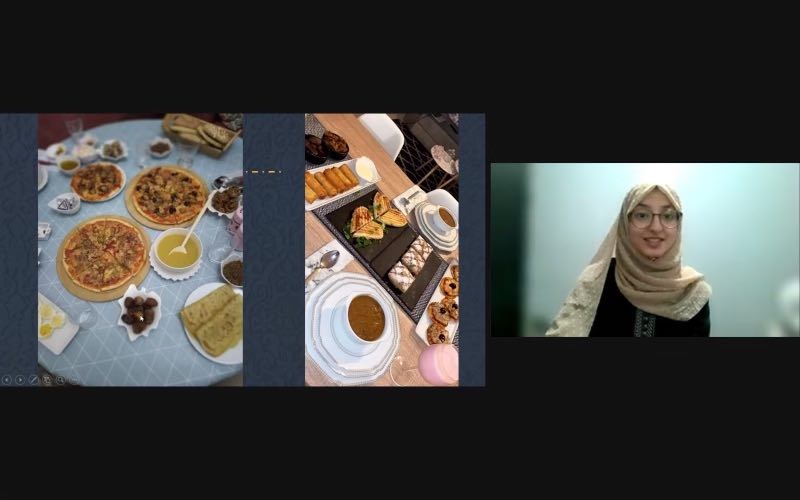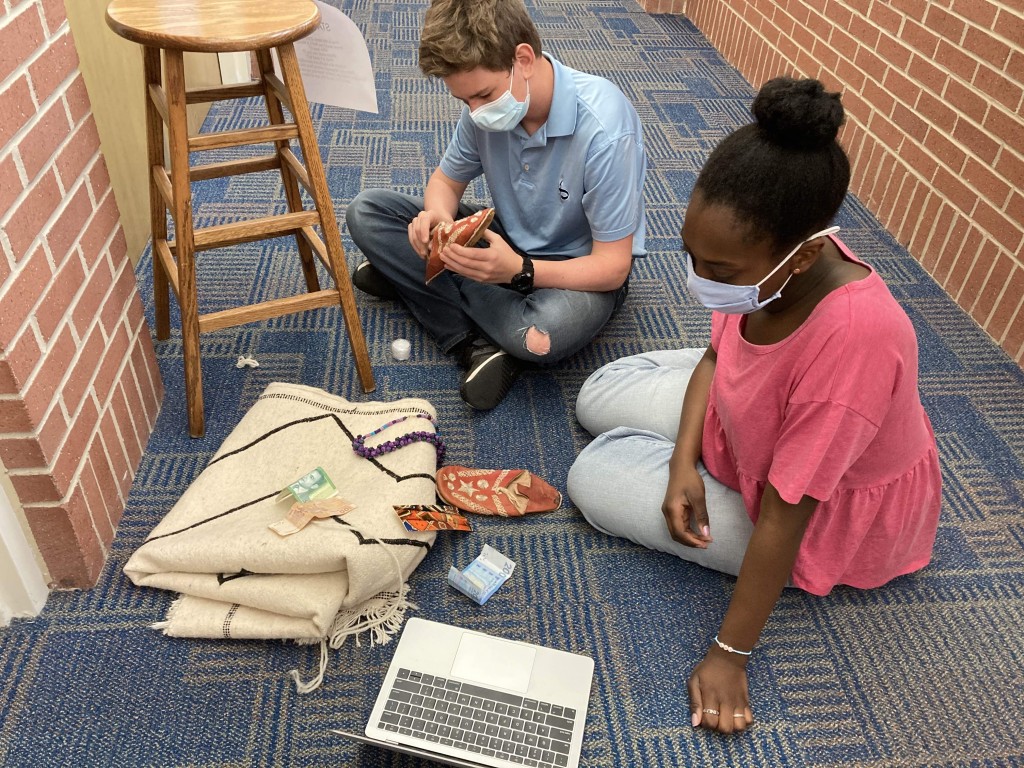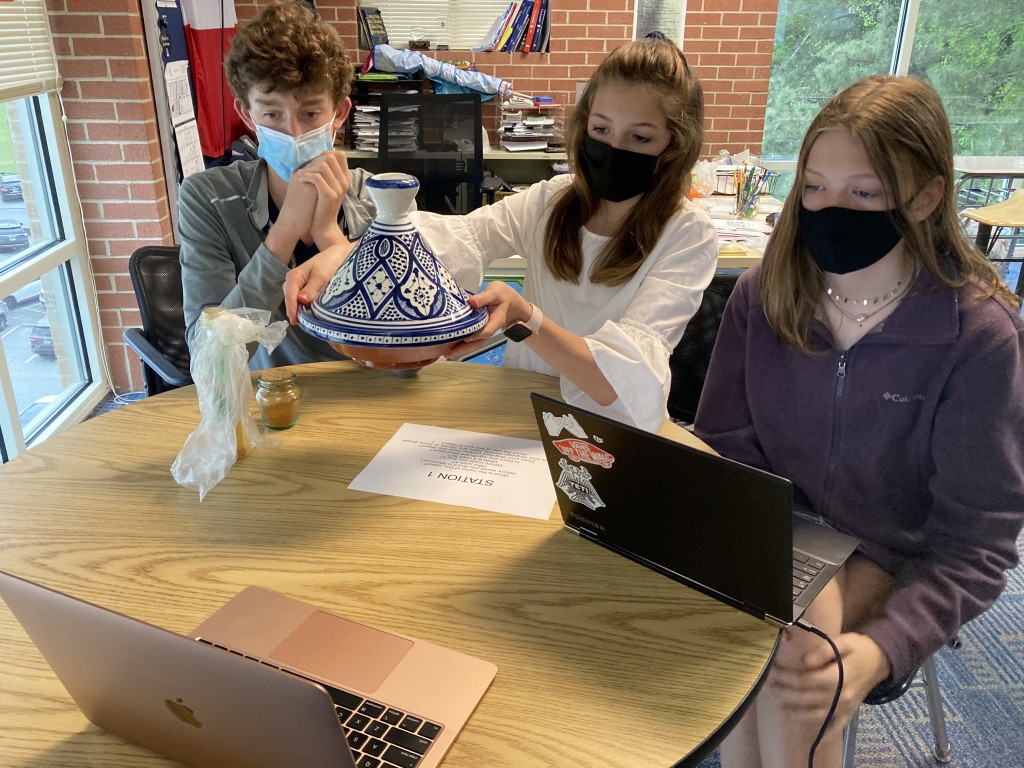By Madame Hermosillo’s 7th Grade French Students
During a year without global travel, seventh grade French students found new opportunities to forge global connections with university students living at Dar Moustaqbel in Marrakech, Morocco. Dar Moustaqbel is a boarding residence that provides women from rural parts of Morocco with supplies, enrichment courses in subjects such as English and French, and a place to live while they attend university. Many women in Morocco often have to forgo university, because travel to and from the school would be too costly. Dar Moustaqbel is one lever to close the gap in education opportunities for Moroccan women.

Over a period of several days, a dozen women from the Dar Moustaqbel residence met virtually with our seventh grade French class. We interviewed our partners and shared stories about our respective experiences with COVID19 and our education systems. Although nothing can replace meeting with people and learning about different cultures in place, we took advantage of virtual channels in ways that we hope to continue.

As Pace students, we found several points of common ground with our Dar Moustaqbel partners. For example, we discovered shared hobbies such as hiking, dancing, and cooking. We talked about favorite courses like math, science and history; and favorite club activities like basketball, volleyball, art, botany, and reading clubs. Pace students gave presentations about American holidays in French and Dar Moustaqbel students explained some of their religious holidays and corresponding local dress and customs. Although these are different from some of the holidays we celebrate, the marking of special days is a familiar practice. The importance of connection with family members and friends also provided a point of shared experience.
|
|
|
We discussed in depth with our Marrakesh partners how our communities and schools responded to COVID19. The fact that we had so many similar stories speaks to both the global nature of the pandemic and the global connections we have as people. At the beginning of the pandemic, the students at Dar Moustaqbel had to stay in their villages and learn remotely. They struggled because they missed their friends and it was harder to learn without the ability to speak in person with their teachers. They were excited when they could finally return to their Dar Moustaqbel campus. We were able to empathize with the challenges of learning remotely, as well as the excitement of returning. We also felt the need for resilience that the students at Dar Moustaqbel identified in order to adapt and continue learning.
As we learned about points of overlap, we discovered several important differences in our experiences. First of all, the issue of access to education is different even if once inside the education system it seems similar. Many of our interviewees expressed that they were the first in their families to attend university and how cultural norms do not guarantee that all women will have access to the same level of education. This is something we have not experienced ourselves and we imagine it would make the time during COVID19 to be even scarier when the access to education became compromised. Being online for us was an inconvenience but this is a different feeling when access is not guaranteed. We also learned that our partners could not always rely on a strong wifi connection when they were in their villages. Our sense was that in Morocco, education is valued but is seen more as a luxury than as a right for all. Many who live in remote rural areas and many women have struggled for access.
Since we conducted our interviews through our French class, the role of language became an interesting point of distinction. Several of our interviewees cited language as their favorite subject in school. All of our interviewees were fluent in multiple languages. Most spoke French, Arabic, English, as well as Amazigh, an indigenous language of North Africa. This facility with language is not as common in the United States. We wondered if the ability to speak multiple languages changes the way you see and connect with the world.
In our reflections of our virtual exchange, we realized that perhaps our differences are not as different as they might seem. Our partners in Dar Moustaqbel highlighted issues of equity in access to education. We might not have experienced this personally, but we know that there are also issues of access in the United States, in Georgia, and in Atlanta. We know that many of our peers in public school, for example, were not able to return to campus this year. We know there still exist in the US differences in educational opportunities based on gender, race and socio-economic access.
We also realized that many of our similarities with the women at Dar Moustaqbel might hold within them some interesting differences to explore. Although students in both locations have cited resiliency as an important factor in overcoming COVID19, and other barriers to education, what does resiliency look like for a Pace student versus a Dar Moustaqbel student? Do we value or reward resiliency differently?
Overall, we learned through our virtual connection, that cultural exchanges provide opportunities for learning about other people and about ourselves. One of the biggest concerns raised by some Dar Moustaqbel students was the desire to break down stereotypes. It was important for them to share with us who they are, what they care about, what their dreams are. They did not want to be limited to stereotypes and assumptions. This led us to wonder what we wanted people to know about us as individuals, as a Pace community, and as Americans. What is our culture? What do we value? What defines us?


